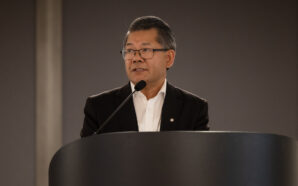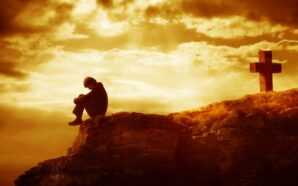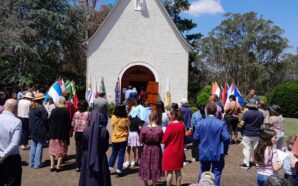Homily for the 3rd Sunday of Advent
Readings: Zephaniah 3:14-18; Isaiah 12:2-6; Philippians 4:4-7; Luke 3:10-18
12 December 2021
On this third Sunday of Advent, we listen to the words of John the Baptist. Like his followers, we are always asking ‘What must we do?’. We’re always searching for answers. How can we make the world more just? How can we make a better contribution to the well being of others and the planet? How can we live a better life?
Listen at https://soundcloud.com/frank-brennan-6/homily-121221
Michael McGirr in his latest book Ideas to Save Your Life reflects on the economist Amartya Sen who ‘argues against a transcendental approach to justice, one that works from the purity of an ideal. He is much more inclined towards a theory of justice based on social realisation, on making something happen.’ [1]
John the Baptist offers us some very practical pointers to living and acting justly. ‘If anyone has two tunics you must share with the one who has none, and the one with something to eat must do the same.’ Think just of the statue of the homeless Jesus on the path to our chapel here at Newman. Ever practical and attentive to the context, John tells tax collectors, ‘Exact no more than your rate.’ And soldiers asking, ‘What must we do?’ are told, ‘No intimidation! No extortion! Be content with your pay!’ This Advent, each of us is invited once again to attend to this most practical of questions: ‘What must I do?’ We are to prepare for the Christ child to come, the one whose winnowing fan will clear the threshing floor, gathering the useful wheat into the barn while burning the useless chaff.
So much of our education and formation in life is about separating wheat and chaff, both within ourselves and in the world in which we work and minister. We’re not alone in this task. We have each other, and we have the accumulated wisdom of the ages. McGirr who writes about philosophy for wisdom, solace and pleasure reminds us that ‘philosophy is about seeing the world in colour, as opposed to grey, and certainly as opposed to black-and white. It can shed light in the darkest corners and create a bond between people who lived hundreds of years apart.’ [2]
On Friday 10 December we celebrated Human Rights Day with the theme ‘Equality – Reducing inequalities, advancing human rights’, marking that day in 1948 when the UN General Assembly adopted the Declaration of Human Rights. Emerging from the scourge of World War II and the Holocaust, the community of nations declared that ‘recognition of the inherent dignity and of the equal and inalienable rights of all members of the human family is the foundation of freedom, justice and peace in the world’ and that ‘disregard and contempt for human rights have resulted in barbarous acts which have outraged the conscience of mankind, and the advent of a world in which human beings shall enjoy freedom of speech and belief and freedom from fear and want has been proclaimed as the highest aspiration of the common people’.
Here we are 73 years later still debating the limits of freedom of speech and belief, and still dreaming of a world in which people can enjoy freedom from fear and want. The 46th Parliament of our Commonwealth has risen for Christmas paralysed and unable to resolve the conflicts about freedom of speech and belief.
In recent weeks, if you were to listen to the media reports, you could be forgiven for thinking that religious educators wanted to retain a right to exclude children or teachers from their schools on the basis of their sexual orientation. Nothing could be further from the truth. Or nothing should be further from the truth. Three years ago, Archbishop Mark Coleridge, the President of the Australian Catholic Bishops Conference, told the Parliament: ‘Catholic schools do not use the exemptions in the Sex Discrimination Act to expel or otherwise discriminate against students on the grounds of sexual orientation, gender identity or intersex status.’ Ms Ann Maree Rebgetz, Board Director of Secondary Principals Australia and principal of St James College in Brisbane told the parliamentary committee:
‘Catholic secondary principals have a strong moral compass in relation to the treatment of secondary students in our schools. They believe that inclusivity, as a gospel value, must reign supreme in the treatment of their clientele. This translates into the safeguarding of all students, and particularly those students who are in a minority and may feel marginalised. Religious schools should not be able to discriminate against students on the basis of their sexual orientation and identity.’ [3] Of course, religious schools should be free to teach their religious doctrine and free to choose teachers sympathetic to the school’s religious ethos.
When marking the 50th anniversary of the UN Declaration of Human Rights, Pope John Paul II called for a collective examination of conscience. He spoke of ‘the tendency of some to choose one or another right at their convenience, while ignoring those which are contrary to their current interests occurs too frequently. Others do not hesitate to isolate particular rights from their context in order to act as they please, often confusing freedom with licence, or to provide themselves with advantages which take little account of human solidarity.’ [4]
Whatever happens with the religious discrimination debate before and after the next election, we need to ensure that we are not trumpeting one right over another. Yes, we all have the freedom to manifest our religion or beliefs subject to whatever lawful limitations are needed to protect the fundamental rights and freedoms of others. And we all have the right to equality before the law being entitled without any discrimination to the equal protection of the law.
The prophet Zephaniah had an active ministry during the reign of King Josiah who instituted ‘a religious and political reform, attempting to disengage from the control of the Assyrian empire’ (640-609BC). Zephaniah insisted that liberation from foreign powers had to be accompanied by the eradication of foreign cults. He focused on national worship at the temple in Jerusalem. Zephaniah foresees punishment of the people for their idolatry, and for their contempt or indifference towards God. A purified people is to be restored, a people made up of the country’s humble and poor with everyone enjoying their rights and freedoms. [5] The people need to put things right, and then, but only then, there will be cause for rejoicing. Zephaniah’s prophecy culminates in the good news of today’s first reading:
Shout for joy, daughter of Zion,
Israel, shout aloud!
Rejoice, exult with all your heart,
daughter of Jerusalem!
The Lord has repealed your sentence;
he has driven your enemies away.
The Lord, the king of Israel, is in your midst;
you have no more evil to fear.
When that day comes, word will come to Jerusalem:
Zion, have no fear,
do not let your hands fall limp.
The Lord your God is in your midst,
a victorious warrior.
He will exult with joy over you,
he will renew you by his love;
he will dance with shouts of joy for you
as on a day of festival.
If we are to rejoice we first need to be attentive to that perennial question asked of John the Baptist: ‘What must we do?’ Do something. Make something happen to improve the state of our world.
[1] Michael McGirr, Ideas to Save Your Life, Text Publishing, 2021, p. 282
[2] Ibid, p. 13.
[3] Legal and Constitutional Affairs Legislation Committee, Report on the Sex Discrimination Amendment (Removing Discrimination Against Students) Bill 2018, February 2019, p. 33.
[4] Pope John Paul II, Message to the president of the 53rd session of the UN General Assembly, to mark the 50th anniversary of the Universal Declaration of Human Rights, 30 November 1998, available at https://www.vatican.va/content/john-paul-ii/en/letters/1998/documents/hf_jp-ii_let_19981130_diritti-umani.html.
[5] See Pierre de Martin de Vivies, ‘Zephaniah’, in The Paulist Biblical Commentary, Paulist Press, 2018, pp. 863-4.
Fr Frank Brennan SJ is the Rector of Newman College, Melbourne, and the former CEO of Catholic Social Services Australia (CSSA). He has been appointed a peritus at the Fifth Plenary Council of the Australian Catholic Church.








